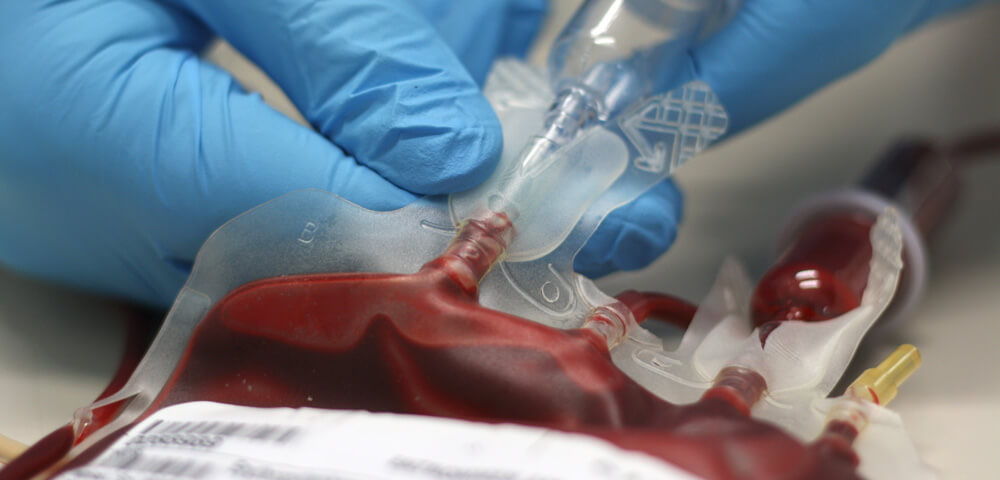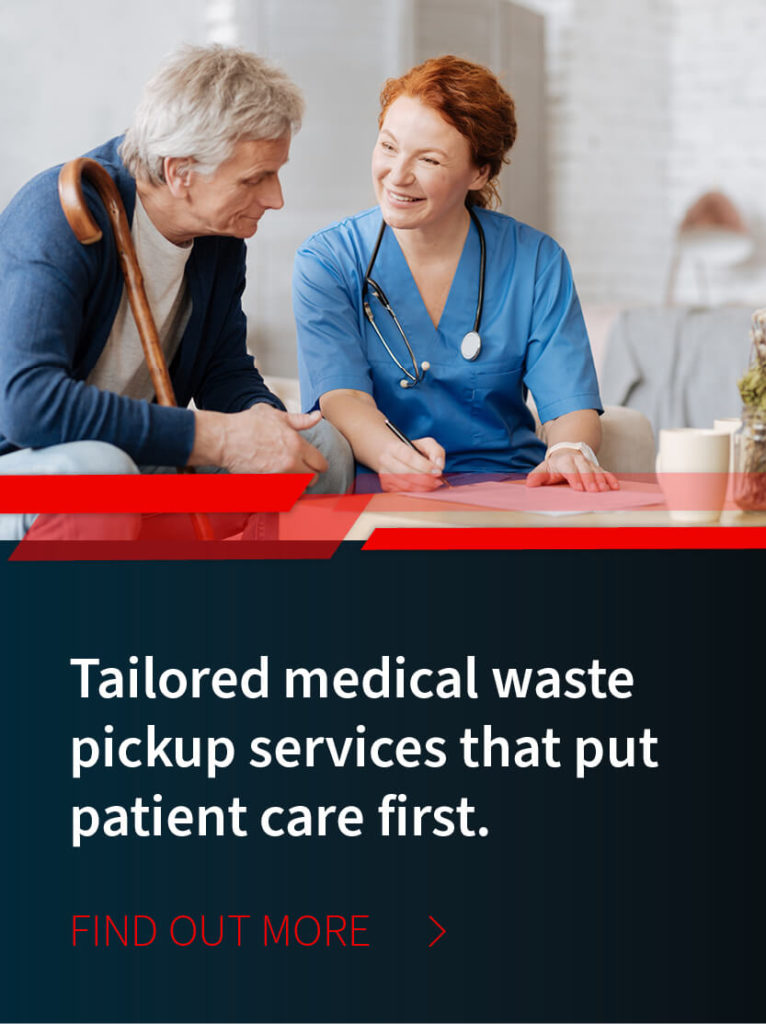
/ IN THIS BLOG
But this isn’t the case.
You, the waste generator, are responsible for the waste generated at your location for the entire life cycle of this waste. This means that your responsibility does not end until after the waste is properly treated and permanently disposed of. Until the process is completed, your company is financially responsible if there are any problems with the waste, such as spills, accidents, and environmental issues, as well as any diseases or injuries these cause.
That alone should pique your curiosity and make you want to look into what happens to medical waste after it is picked up. Although the process can vary, here is typically what happens to medical waste.
01 / Waste Generators Need to Understand What Medical Waste Management Companies Do in Their Disposal Process
It’s essential to be aware of how your waste management company is disposing of your facility’s medical waste. You need to ensure that the waste is being disposed of in a manner that complies with all relevant regulations, safeguarding you from negative outcomes and consequences.
02 / Cradle to Grave Liability
Often, waste generators fail to realize exactly what their liability is for the medical waste their facility generates. But, they are entirely responsible for the waste they generate from its creation until it is properly treated and disposed of. This is true even after a medical waste disposal company picks up the waste. You may be surprised to learn that the liability for this medical waste is not transferred to medical waste management companies upon pick-up. Your facility is still responsible until the waste is treated and disposed of according to all local and national regulations. This is called cradle-to-grave liability.
03 / The Medical Waste Disposal Process
Your facility is responsible for the waste it generates. Therefore, it is important to understand the waste disposal process after your waste disposal company picks up the waste. The process depends on the type of waste involved. Here are some common types of medical waste and their disposal process.
04 / Regulated Medical Waste
Regulated medical waste is biohazardous waste and is commonly known as “red bag waste.” This waste is solid or liquid waste that is potentially contaminated with infectious materials or blood. Some common items are: used bandages or gloves, catheters, specimen cups, and swabs. This type of waste must be treated in a medical waste autoclave to sterilize the waste. Once the waste is treated in the autoclave, it can be disposed of in a landfill.
It is important to remember that some more dangerous items, such as sharps, pharmaceuticals, and used syringes, among others, should not be place in red bags. They have their own disposal methods. For instance, sharps and used syringes should be placed in a sharps container and picked up by a medical waste disposal company. It is important to be sure your staff is familiar with the correct disposal method for difference categories of items.
05 / Pathological Waste
Unlike other types of medical waste, pathological waste is not an object or material used when treating patients. Instead, this waste is made up of human or animal body parts, as well as bodily fluids and tissues. This waste must be separated from red bag waste and incinerated. Incineration involves higher temperatures than those used in autoclaving, and it also turns the waste into ash or dust.
06 / Trace Chemotherapy Waste
Trace chemotherapy waste consists of items that are contaminated with residual amounts of chemotherapy drugs. Common items included in this waste are towels, pads, disposable gowns, wipes, medicine bags, as well as other parts of the chemotherapy process. Like pathological waste, trace chemotherapy waste must be incinerated. The waste will need to be segregated from other waste and sent to an appropriate facility to be processed. After the waste is properly treated so as not to be a health risk, it can be sent to a landfill.
07 / The Importance of an Experienced and Reliable Waste Disposal Company
What disposal company your facility decides to work with matters. If you choose a company that is not knowledgeable and reliable, they could fail to properly handle and dispose of your facility’s medical waste. If this happens, your facility is responsible, and it could result in fines and insurance claims.
08 / OSHA Fines
Some medical waste management companies are unaware of all the regulations covering medical waste disposal, such as the required paperwork which needs to accompany such waste. Without such know-how, they might not supply you with the required paperwork that you need to maintain in your facility’s records for every medical waste disposal transaction. This could be a problem if the Occupational Safety and Health Administration (OSHA) comes to your facility and wants to see these records.
You must have copies of the paperwork indicating when each shipment was made, as well as where the shipment was sent. The required paperwork depends on the type of waste. But, it is often a bill of lading or hazardous waste manifest. The company you work with should also be able to provide you with a certificate of destruction if you request it. A certificate of destruction can be used to show that the medical waste was incinerated without any problems.
09 / Insurance Claims
Another issue to consider when choosing a medical waste disposal company is whether or not they have sufficient insurance to cover any damage that may occur or any required cleanup. You should find out about insurance coverage before signing any agreements since, again, your facility is responsible for any waste it generates. Additionally, be sure to ask about any required permits, such as those for transportation or receiving. If the company is reputable, they will not hesitate to show you these permits.
As you can see, choosing a medical waste management company is an essential part of ensuring your facilities compliance and protects your business from damaging oversights and issues. It’s up to you to make sure that your waste disposal gets transported and disposed of in the safest way possible.
If you would like additional information about the life cycle of medical waste or your responsibilities as a waste generator, contact MCF Environmental Services. We are an experienced medical waste management company dedicated to providing you the utmost in safety and reliability.
Robert Losurdo
President, COO








